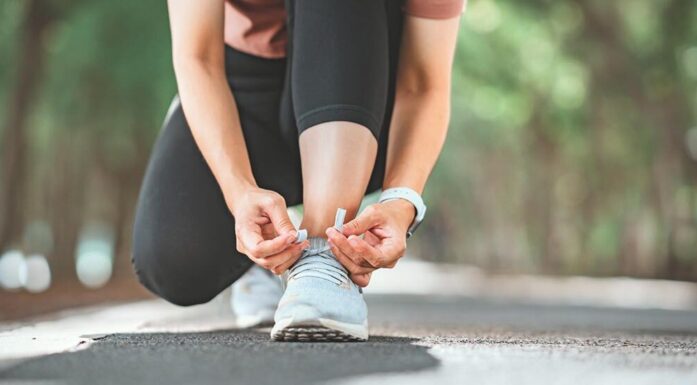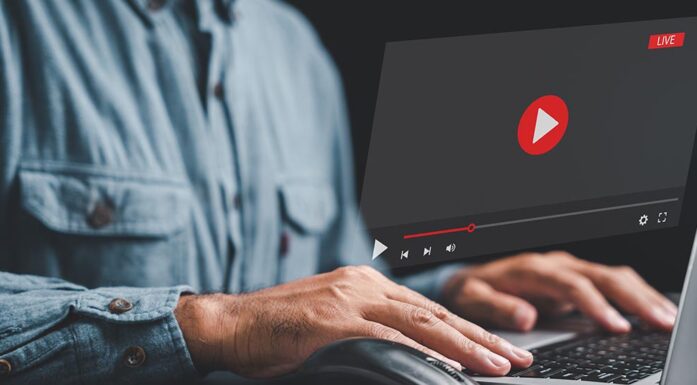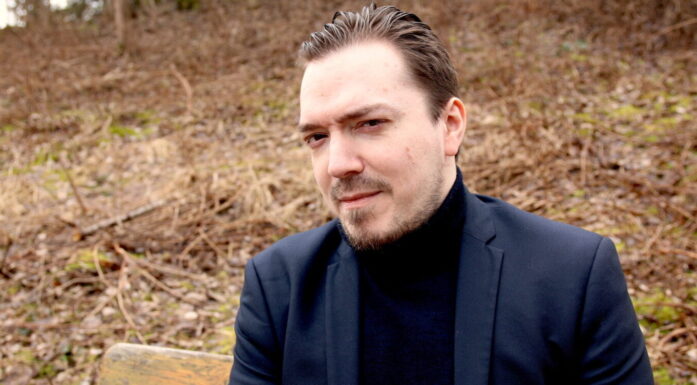A toolbox for good mental health
“You can actually work on your mental health, just like you exercise your body. You can also become a coach for others,” said Professor Steinar Krogstad.
In brief
In a time marked by uncertainty and crises, it is important to strengthen mental health through small, daily actions.
These are troubling times, where there is much to worry about. Emergency preparedness has suddenly become a highly relevant topic, and many people are plagued by a sense of unease and even fear. With the news dominated by war, disasters, famine and presidents who gamble everything and turn the world upside down, things can feel rather hopeless.
How can we best cope with this and take care of our mental health?
“We find ourselves in a complex situation, and there are a lot of things we are unable to do anything about. But making a few small changes in our lives can have a huge impact on our mental health,” says Steinar Krokstad. He is a professor of social medicine at NTNU and head of the HUNT Research Centre.
“We all have basic, fundamental needs, and these become especially important when times are tough,” Krogstad said.
Improving mental health through exercise
If you ask people what they can do to take care of their health, most of them will quickly answer that eating healthily, exercising and not smoking are important for good physical health. We know that.
We see a global deterioration in mental health among many young people, and this coincides with the rise of social media. It all started when we gave them smartphones.
“But we don’t get such clear answers when we ask what is important in relation to taking care of mental health. If you ask people what they can do to help others who are not doing so well mentally, many of them also feel pretty helpless. We don’t have enough awareness and knowledge about mental health,” Krokstad said.
“But you can actually work on your mental health – in the same way you can with your physical health. And you can also become a coach for other people.”
Krokstad has created a toolbox with three simple pieces of advice.
National pilot in 2022
The toolbox and methodology are called ABC and were developed in Australia in 2008.
In Norway, Trøndelag County started a national pilot project using ABC in 2022, and 11 counties in Norway have now adopted the methodology, organized by the Norwegian Directorate of Health. Steinar Krokstad has led the professional work of developing the project.
The ‘ABCs of Mental Health’ (in Norwegian) is a public health campaign. It focuses on building and strengthening mental health for the entire population through activity, community and meaningful activities.
“It is what you do in your daily life that matters. If you do something that is good for yourself, it often ends up being good for others as well,” Krokstad said.
Be active
The A stands for ‘Act’ – doing something active.
When you do something active, something that you enjoy doing, you often feel better. We like doing different activities, and the most important thing is that you do something on a regular basis and that you enjoy doing it.
It can be things like going for a walk, exercising, knitting, drawing, sewing, woodworking, gardening or foraging for mushrooms and berries – it is totally up to you.
- You might also like: Yes, it’s true – a walk in the woods actually helps with anxiety and depression
Do something with other people
The B stands for ‘Belong’ – doing something with other people where you experience a sense of belonging. Maybe invite someone to go for a walk. Join – or even start – a group for people with the same hobby as you. Maybe you could participate in an activity in your local neighbourhood.
It is often more fun if you are active with someone else. Human connections matter a lot, both for yourself and for the people you share experiences with.
People need each other.
Do something meaningful
The C stands for ‘Commit’ – doing something that you find meaningful: something that makes you feel good, something that matters to you, and to others. Maybe visit someone who does not get out of the house that often, or join a volunteer organization.
“We all have a basic need to contribute something of value. To contribute and be part of creating change. Everyone can do something to improve their own mental health, and we can all help others feel better. Small actions can make a big difference – both for yourself and for other people,” Krokstad said.
Failed the youth of today
A number of recent studies show that many young people struggle with their mental health. Steinar Krokstad believes we have failed the youth of today.
“We have passively observed that the everyday lives of our young people have changed drastically without doing anything about it. What we have observed in our data is pretty alarming. We see a global deterioration in mental health among many young people, and this coincides with the rise of social media. It all started when we gave them smartphones,” he said.
Krokstad believes there has been a shift in society from being concerned with what is happening around us to being focused on ourselves as individuals.
“Through social media, many people are seduced and misled into focusing on their body, their appearance, acquiring things and becoming rich. Egocentricity and narcissism are growing in society, and the forces behind them are commercial actors who are out to make money.”
- You might also like: People who are most active on social media are also most active offline
Need to lift our gaze
“In the current situation, it is even more important to offer children and young people the opportunity to do something active and meaningful together with others,” Krokstad said.
He believes that we must lift our gaze instead of just focusing on ourselves.
“We must help young people build self-worth and guide them towards activities where they experience a sense of mastery. Young people must experience that they are needed and that society has a role for them in working life and in other areas,” he said.
Does the ABC method work?
The HUNT Study has surveyed and recorded the health of people in Trøndelag for over 40 years, focusing on both physical and mental health.
“The people who score well on the three types of activities in the ABC method also score well on mental health in the HUNT Study,” said Krokstad. In other words, people who are active, engage in activities with others and do things they find meaningful have better mental health.
“We are also building on experiences from Australia, where the ABC methodology was developed, and from Denmark, which has come much further than Norway in implementing the ABC method,” explained Krokstad.
In an evaluation of the ABC pilot in Trøndelag County, 80 per cent of the respondents reported that they have become more aware of and gained knowledge about mental health. In addition, 80 per cent said they talk to other people about mental health in a new way, and 16 per cent said they have changed their daily behaviour in order to improve their own mental health.
Experiences from Trøndelag County
Mia Leirtrø Garli has written a Master’s thesis in Public Health on the ABC method.
An electronic survey was conducted in Trøndelag County among the population aged 16-79. A total of 1513 people participated.
The results showed that a significantly larger proportion of the population found it difficult to find and understand information about mental health compared to physical health.
The findings also showed that low levels of knowledge about mental health in the population are associated with poorer subjective health and lower subjective quality of life.
You can read more about her findings here (in Norwegian): Master’s thesis by Mia Leirtrø Garli: Lavt kunnskapsnivå om psykisk helse i befolkningen er assosiert med dårligere subjektiv helse og lavere subjektiv livskvalitet [Low mental health literacy is associated with poorer subjective health and lower subjective quality of life] 2023[45]
Experiences from Australia and Denmark
An article on the experiences from Australia and Denmark addresses the development, implementation and evaluation of the ABC campaign, which is the world’s first comprehensive public mental health campaign.
The article concludes that the implementation of the ABC framework has proven to be a valuable resource for building capacity to promote mental health.
Reference:
Donovan, R.J.; Koushede, V.J.; Drane, C.F.; Hinrichsen, C.; Anwar-McHenry, J.; Nielsen, L.; Nicholas, A.; Meilstrup, C.; Santini, Z.I. Twenty-One Reasons for Implementing the Act-Belong-Commit—‘ABCs of Mental Health’ Campaign. Int. J. Environ. Res. Public Health 2021, 18, 11095. https://doi.org/10.3390/ijerph182111095





